Welcome to our discussion on the critical role of policy enforcement in social service agencies. Navigating the intricate landscape of regulations and guidelines can seem daunting, but understanding these policies is essential for delivering effective support to the community. In this article, we will explore how proper policy enforcement not only safeguards the integrity of services but also enhances the overall well-being of those we serve. So, let's dive deeper into this important topic and discover how we can improve our approach together!
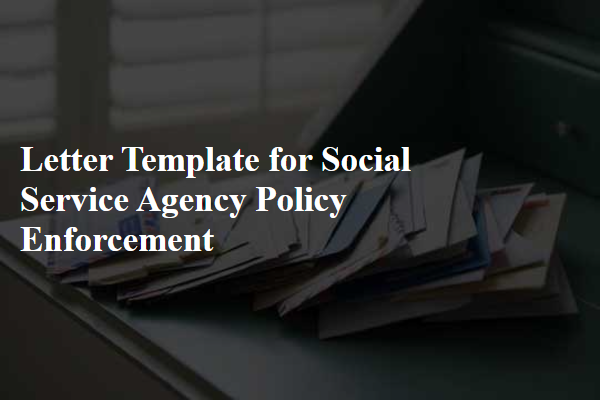
Compliance Obligation
The enforcement of compliance obligations is essential for social service agencies to ensure adherence to governing regulations and ethical standards. Policies established by agencies, such as the National Association of Social Workers Code of Ethics, demand full compliance from staff members in programs like child protection (targeting vulnerable populations defined under federal and state law). Regular audits, such as biannual reviews, can identify discrepancies in adherence, while training sessions promote awareness of agency obligations. Non-compliance can lead to serious consequences, including financial penalties or loss of licenses from regulatory bodies like state licensing boards for social work. Effective communication of these policies through detailed handbooks is crucial for maintaining a supportive environment that prioritizes the welfare of clients while fulfilling legal mandates.
Stakeholder Communication
Effective stakeholder communication is critical in social service agency policy enforcement. Engaging with community leaders fosters collaboration and understanding of policies such as the Social Security Act or the Families First Coronavirus Response Act. Regular updates through newsletters and community forums enhance transparency, ensuring stakeholders, including non-profit organizations and local governments, are informed about policy changes and their implications. Incorporating feedback from stakeholders like clients and service providers is essential for refining policies, improving service delivery, and addressing community needs, ultimately leading to more effective programs that uplift vulnerable populations.
Legal and Ethical Framework
A social service agency operates within a legal and ethical framework that ensures the protection of client rights and promotes effective service delivery. Compliance with federal laws, such as the Americans with Disabilities Act (1990), guarantees accessibility for individuals with disabilities, enhancing inclusion and support. State regulations, which vary significantly across jurisdictions, guide the implementation of programs and services, ensuring adherence to statutory requirements. Ethical standards set forth by professional organizations, like the National Association of Social Workers, outline principles such as confidentiality, informed consent, and respect for the dignity of all clients. Regular training and policy reviews enforce adherence to these legal and ethical guidelines, fostering a safe environment for clients and staff alike. Additionally, reporting mechanisms for unethical behavior are crucial for maintaining accountability and transparency within the agency's operations.
Consistency and Fairness
In social service agencies, consistency and fairness in policy enforcement are essential for building trust and ensuring equitable treatment among clients. Effective policy enforcement should reflect standardized procedures across various programs, including eligibility assessments and service delivery mechanisms. Transparency in communication regarding policy changes, such as those related to funding allocations or eligibility criteria, is crucial for maintaining public confidence. Training staff members regularly enhances their understanding of policy nuances, including legal frameworks like Title VI of the Civil Rights Act, which prohibits discrimination. Monitoring outcomes through regular audits and client feedback sessions encourages accountability while ensuring that diverse communities receive appropriate support reflective of their unique needs. Implementing clear guidelines for addressing complaints fosters an environment where clients feel heard and valued, reinforcing the commitment to fairness in all agency operations.
Documentation and Record-keeping
Documentation and record-keeping are crucial aspects of social service agency policy enforcement, ensuring accountability and transparency. Accurate records, including client files and service logs, provide a detailed history of interactions, services provided, and outcomes achieved, thus serving as evidence of compliance with state and federal guidelines. Agencies must adhere to specific regulations, such as the Health Insurance Portability and Accountability Act (HIPAA), which mandates the protection of personal health information. Regular audits (conducted bi-annually in some agencies) of documentation practices are essential to identify discrepancies, enhance service delivery, and improve overall operational efficiency. Moreover, electronic filing systems streamline data retrieval and analysis, facilitating better decision-making processes and supporting goal tracking for various programs, including housing assistance and mental health services. Compliance with these record-keeping standards not only fosters trust among clients but also elevates the agency's credibility within the community.
Letter Template For Social Service Agency Policy Enforcement Samples
Letter template of policy enforcement for social service agencies addressing client compliance.
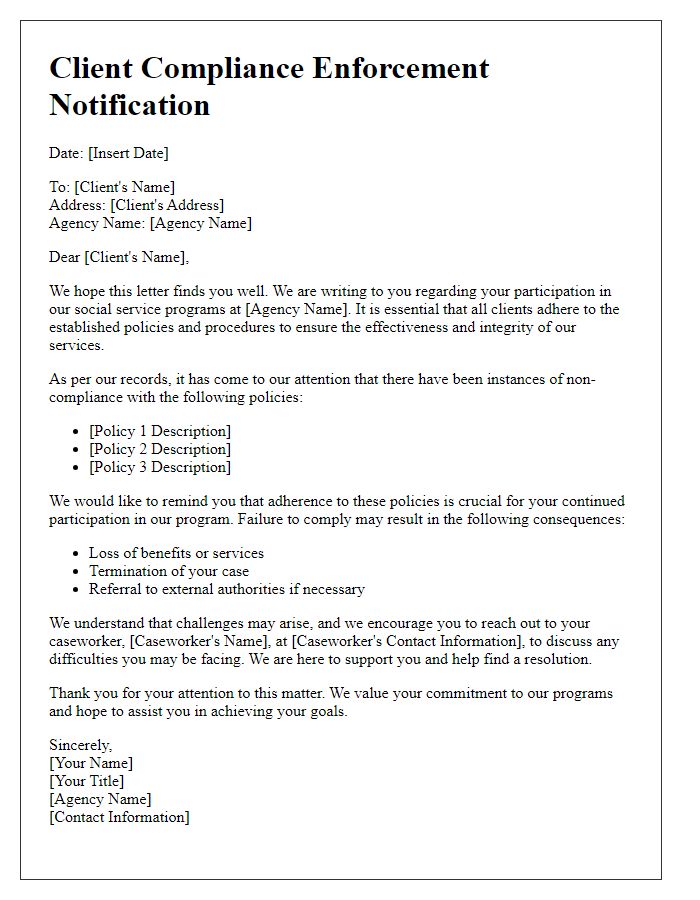
Letter template of service guidelines enforcement for nonprofit organizations.
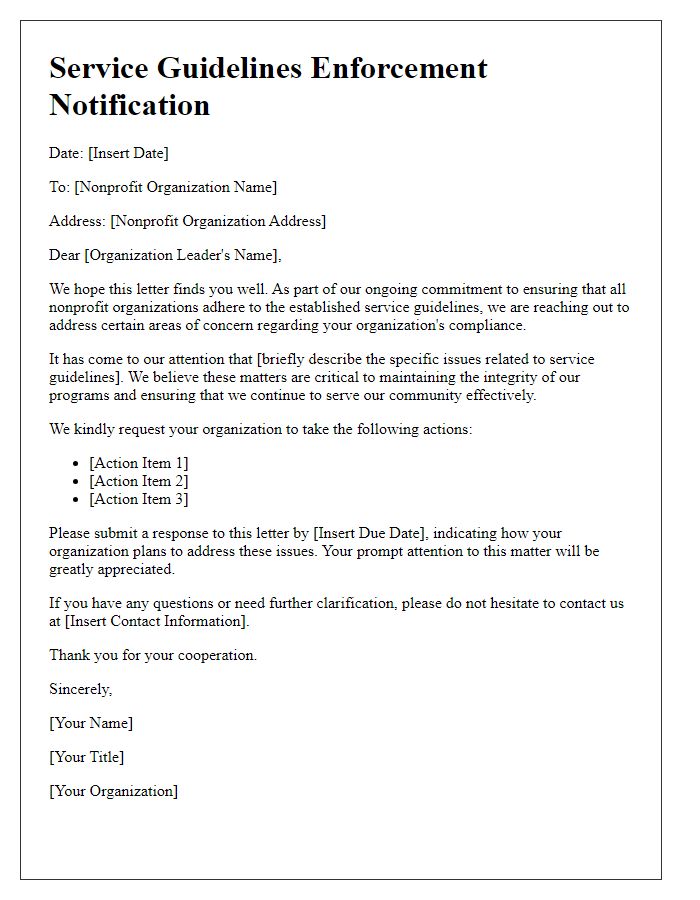
Letter template of regulatory adherence notification for community service agencies.
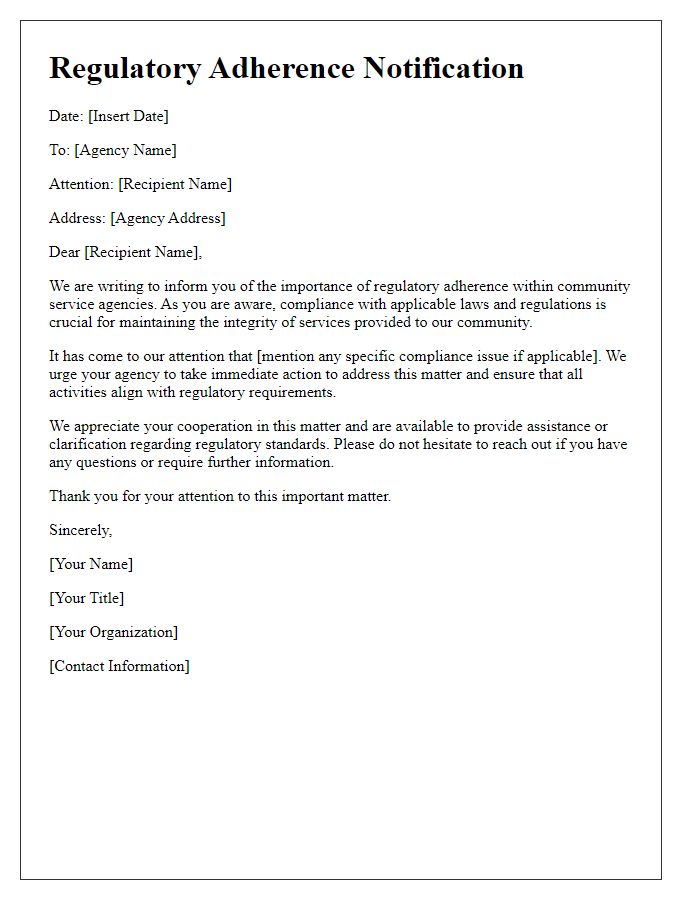
Letter template of policy enforcement communication for social work practitioners.
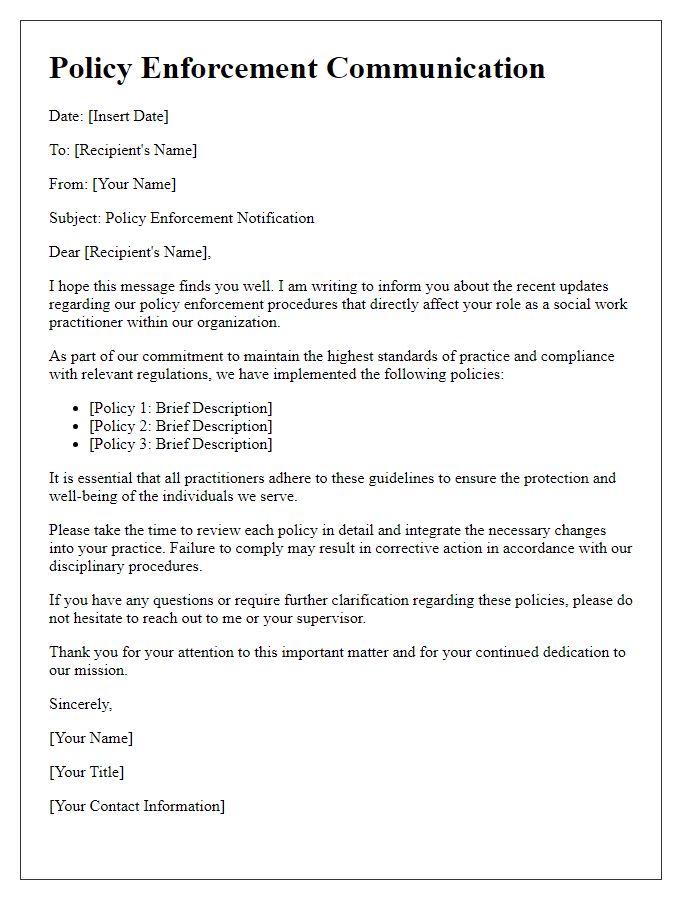
Letter template of compliance reminder for social services practitioners.
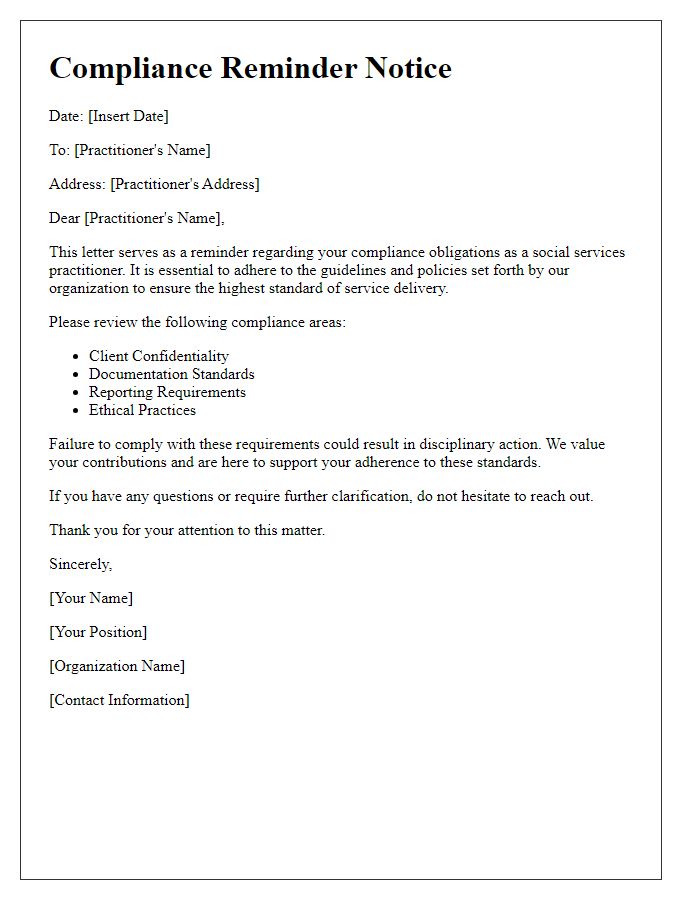
Letter template of policy update notification for social support organizations.
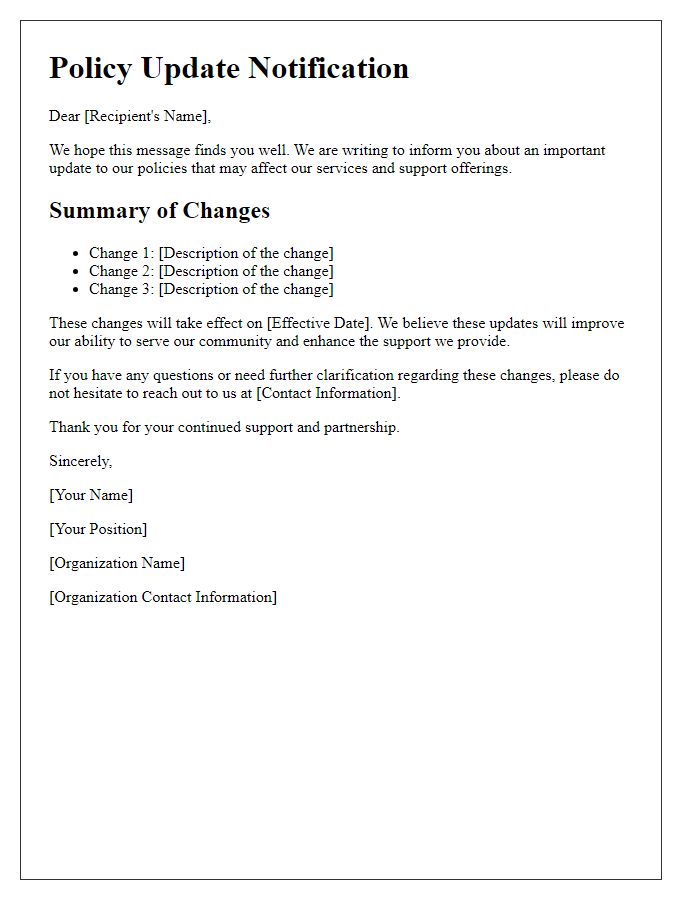
Letter template of compliance expectation letter for social assistance providers.
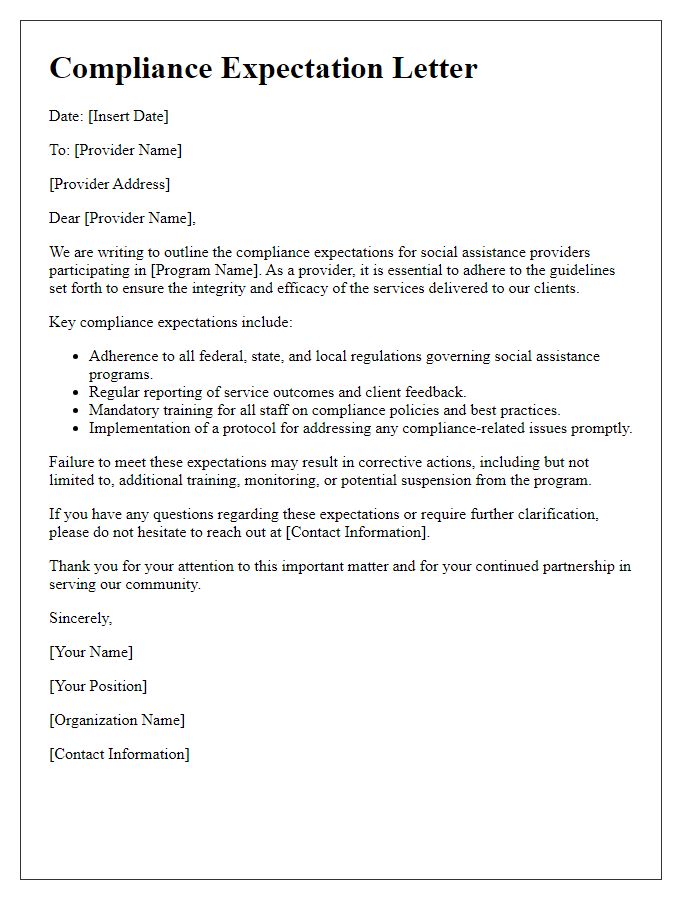

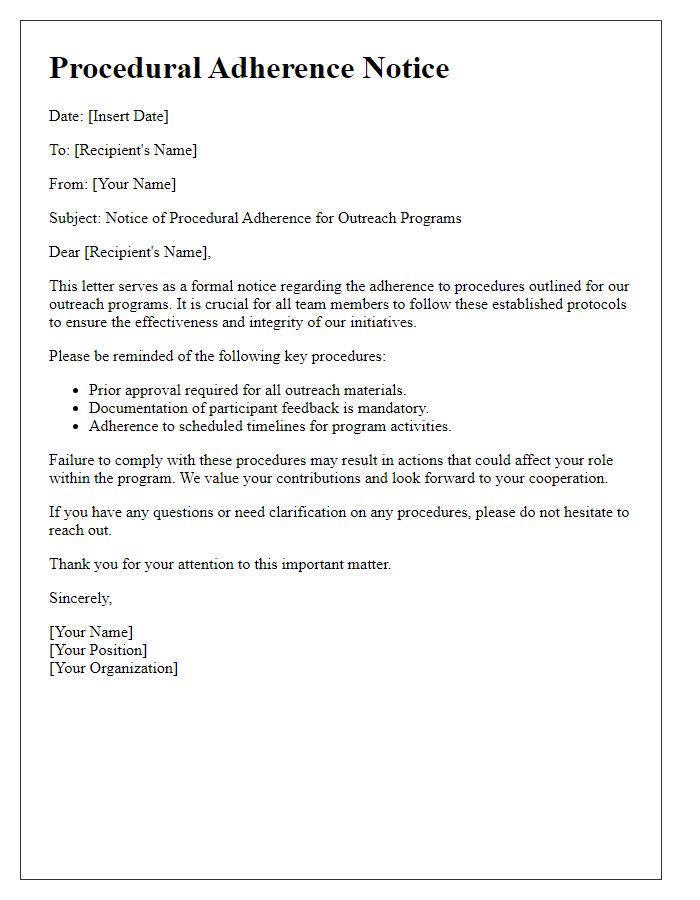
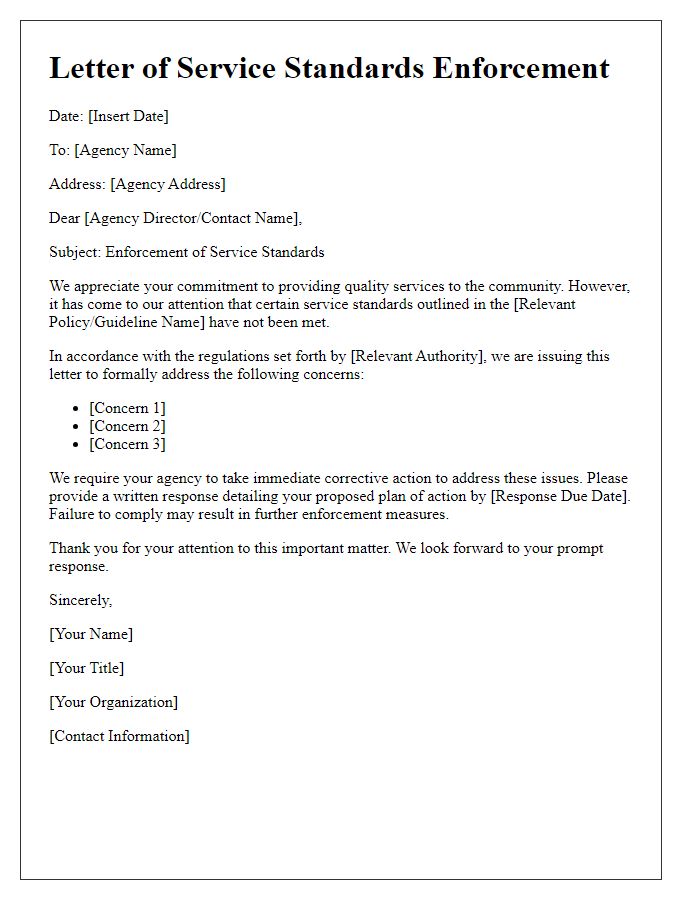
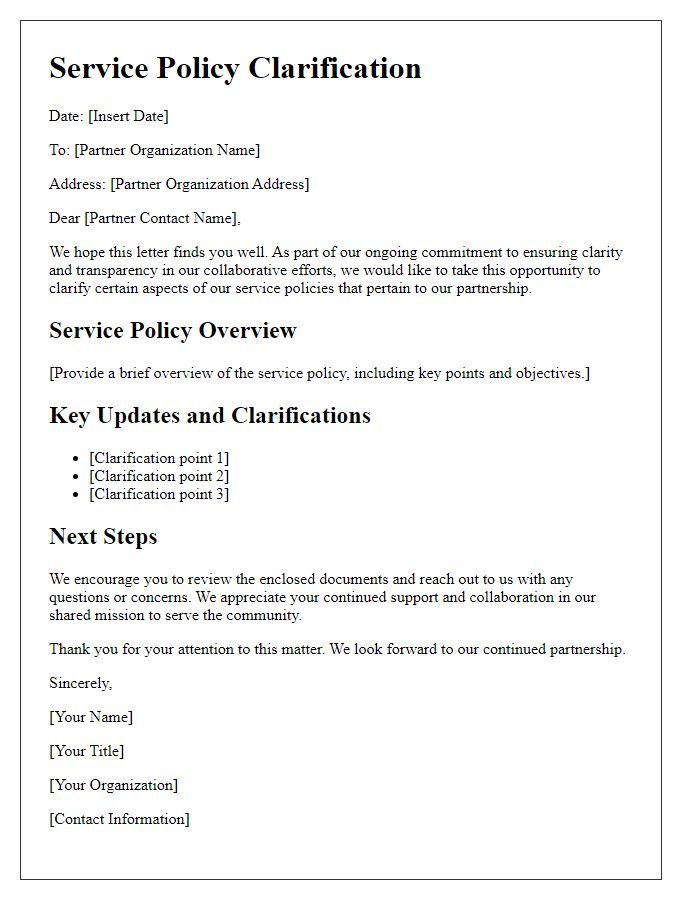

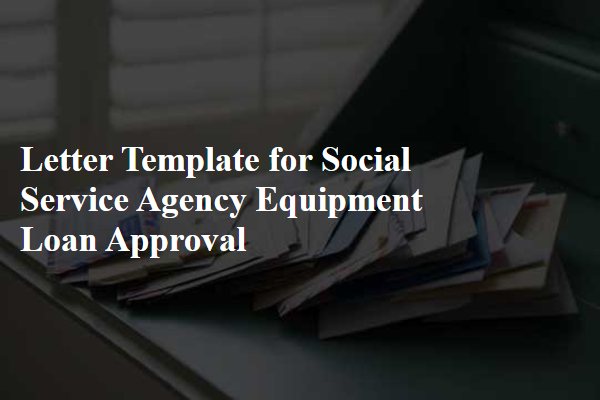
Comments